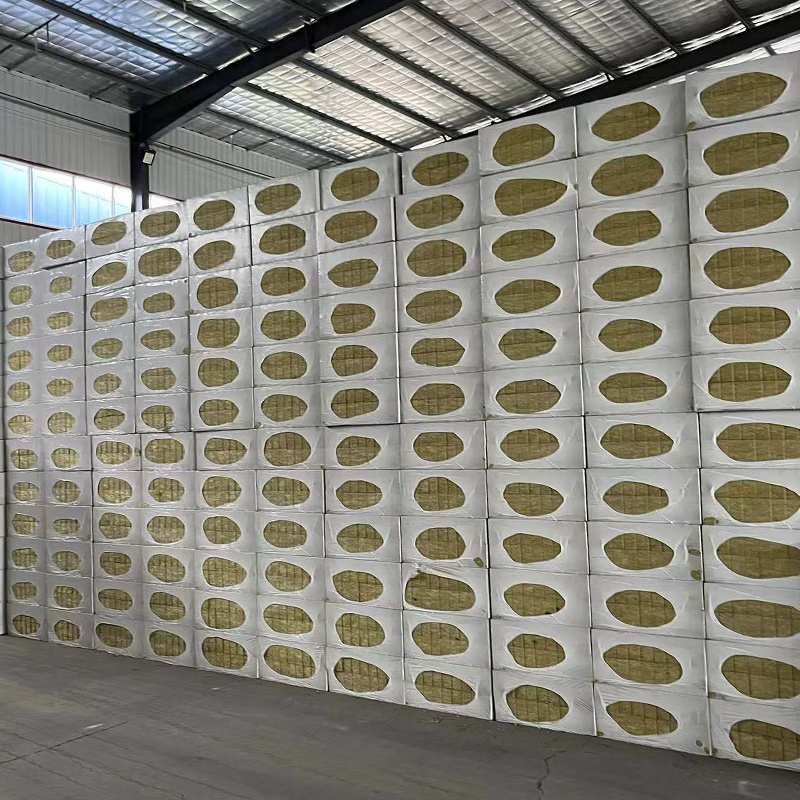Why Ceramic Fiber Board Insulation is Essential for Glass and Ceramic Manufacturing
Sep 15,2025

Why Ceramic Fiber Board Insulation is Essential for Glass and Ceramic Manufacturing
In the ever-evolving world of glass and ceramic manufacturing, **efficiency**, **safety**, and **performance** are paramount. As industries strive to improve their processes and products, one material has emerged as a game-changer: **Ceramic Fiber Board Insulation**. This article explores the importance of ceramic fiber board insulation in the manufacturing of glass and ceramics, detailing its benefits, applications, and why it has become an essential component for manufacturers.
Table of Contents
- 1. Introduction to Ceramic Fiber Board Insulation
- 2. Key Benefits of Ceramic Fiber Board Insulation
- 3. Applications in Glass and Ceramic Manufacturing
- 4. Thermal Performance and Efficiency
- 5. Cost Savings Associated with Insulation
- 6. Safety Standards and Compliance
- 7. Environmental Impact and Sustainability
- 8. Future Trends in Ceramic Fiber Technology
- 9. Frequently Asked Questions
- 10. Conclusion
1. Introduction to Ceramic Fiber Board Insulation
Ceramic fiber board insulation is a lightweight, high-temperature insulation material made from aluminum silicate fibers. These fibers are manufactured through a process that involves melting raw materials at high temperatures and then spinning them into fine strands. The result is a product that offers excellent thermal resistance, low thermal conductivity, and remarkable durability, making it ideal for the glass and ceramic manufacturing sectors.
In glass and ceramic manufacturing, maintaining optimal temperatures during processing is critical. Any fluctuations can lead to defects in the final products, resulting in waste and increased costs. Ceramic fiber board insulation helps mitigate these risks by providing a stable thermal environment, thus ensuring product quality.
2. Key Benefits of Ceramic Fiber Board Insulation
The advantages of using ceramic fiber board insulation in glass and ceramic manufacturing are numerous and impactful. Here are some of the key benefits:
2.1 Exceptional Thermal Resistance
Ceramic fiber boards can withstand high temperatures, often exceeding 1,600°C (2,912°F). This makes them ideal for environments where extreme heat is a constant factor, such as kilns, furnaces, and forges. Their remarkable thermal resistance helps ensure that heat is retained within the production area, enhancing energy efficiency.
2.2 Lightweight and Easy to Install
Unlike traditional insulation materials that can be cumbersome and heavy, ceramic fiber board insulation is lightweight and easy to handle. This feature simplifies the installation process, reducing labor costs and time. Additionally, the boards can be cut to size without losing their structural integrity, allowing for customized installation solutions.
2.3 Low Thermal Conductivity
Ceramic fiber board insulation boasts low thermal conductivity, which minimizes heat loss during the manufacturing process. This property not only contributes to energy efficiency but also helps maintain a consistent temperature, reducing the risk of defects in finished products.
2.4 Chemical Resistance
In glass and ceramic manufacturing, exposure to various chemicals is inevitable. Ceramic fiber board insulation is highly resistant to chemical corrosion, making it suitable for use in hostile environments. This resistance ensures that the insulation maintains its integrity over time, providing long-lasting performance.
3. Applications in Glass and Ceramic Manufacturing
Ceramic fiber board insulation is versatile and finds application in several areas of glass and ceramic manufacturing:
3.1 Kilns and Furnaces
Kilns and furnaces are central to the glass and ceramic manufacturing process. The use of ceramic fiber board insulation in these high-temperature environments helps ensure uniform heating and energy efficiency. By minimizing heat loss, manufacturers can reduce their energy consumption and improve overall productivity.
3.2 Thermal Barriers
Ceramic fiber boards serve as effective thermal barriers between different processing zones within a manufacturing facility. This separation helps maintain optimal temperatures across various areas, thereby enhancing product quality and reducing the risk of defects.
3.3 Molds and Casting Equipment
In mold-making and casting processes, maintaining a consistent temperature is key to achieving desired results. Ceramic fiber board insulation can be applied to molds and casting equipment to improve heat retention, ensuring that the materials flow evenly during the casting process.
4. Thermal Performance and Efficiency
The thermal performance of ceramic fiber board insulation is a vital aspect that significantly impacts manufacturing efficiency. When implementing this insulation material, manufacturers can expect the following advantages:
4.1 Enhanced Energy Efficiency
By using ceramic fiber board insulation in high-temperature applications, manufacturers can achieve substantial energy savings. The insulation minimizes heat loss, allowing furnaces and kilns to maintain higher temperatures with less energy input. This improved energy efficiency translates to lower operational costs.
4.2 Consistent Product Quality
A stable thermal environment contributes directly to the quality of the final products. By utilizing ceramic fiber board insulation, manufacturers can reduce temperature fluctuations that may lead to defects, ensuring that each batch meets stringent quality standards.
5. Cost Savings Associated with Insulation
Investing in ceramic fiber board insulation can yield significant cost savings for glass and ceramic manufacturers. Here’s how:
5.1 Reduced Energy Bills
One of the most immediate benefits of using ceramic fiber insulation is the reduction in energy consumption. With better heat retention, manufacturers can expect to see lower energy bills, contributing to overall cost savings.
5.2 Extended Equipment Lifespan
The protective qualities of ceramic fiber board insulation can extend the lifespan of kilns, furnaces, and other equipment. By minimizing wear and tear caused by extreme temperatures, manufacturers can avoid costly repairs and replacements.
5.3 Lower Maintenance Costs
With ceramic fiber board insulation, maintenance costs are likely to decrease. The durability and chemical resistance of the insulation reduce the need for frequent replacements, thereby lowering overall maintenance expenses.
6. Safety Standards and Compliance
In any industrial setting, adhering to safety standards is crucial. Ceramic fiber board insulation meets various safety regulations and standards, ensuring that manufacturers can operate within legal parameters while providing a safe working environment for employees.
6.1 Non-Toxic Material
Ceramic fiber insulation is composed of non-toxic materials, making it a safer choice than other insulation options that may release harmful substances. This characteristic is particularly important in glass and ceramic manufacturing, where air quality and worker safety are paramount.
6.2 Compliance with Industry Standards
Manufacturers can rest assured knowing that ceramic fiber board insulation complies with relevant industry standards. This compliance helps organizations avoid legal issues and reinforces their commitment to maintaining a safe work environment.
7. Environmental Impact and Sustainability
As industries become increasingly aware of their environmental footprint, the choice of materials plays a significant role in achieving sustainability goals. Ceramic fiber board insulation offers several environmental benefits:
7.1 Energy Conservation
The excellent thermal performance of ceramic fiber board insulation contributes to energy conservation. By reducing energy consumption during production, manufacturers can lessen their environmental impact and contribute to global sustainability efforts.
7.2 Recyclable and Eco-Friendly
Ceramic fiber insulation materials can often be recycled and repurposed at the end of their life cycle, further enhancing their eco-friendliness. By opting for sustainable materials, manufacturers can improve their overall environmental profile.
8. Future Trends in Ceramic Fiber Technology
The future of ceramic fiber insulation appears promising, with ongoing advancements in technology and materials. Here are some trends to watch:
8.1 Innovations in Material Composition
Manufacturers are continually exploring new compositions and manufacturing processes to enhance the performance of ceramic fiber insulation. Innovations may lead to even better thermal resistance and mechanical properties.
8.2 Increased Focus on Sustainability
As sustainability becomes a central focus for manufacturers, the demand for eco-friendly materials will likely drive the development of more sustainable ceramic fiber insulation options. This trend aligns with the growing emphasis on corporate social responsibility and environmental stewardship.
9. Frequently Asked Questions
9.1 What is ceramic fiber board insulation made of?
Ceramic fiber board insulation is composed of aluminum silicate fibers, produced through a high-temperature melting process that creates fine strands.
9.2 How does ceramic fiber board insulation improve energy efficiency?
Ceramic fiber insulation minimizes heat loss in high-temperature environments, allowing kilns and furnaces to operate at optimal temperatures with less energy consumption.
9.3 Is ceramic fiber board insulation safe for use in manufacturing?
Yes, ceramic fiber insulation is made from non-toxic materials and meets industry safety standards, making it a safe choice for glass and ceramic manufacturing.
9.4 Can ceramic fiber board insulation be recycled?
Yes, ceramic fiber insulation is often recyclable, providing an eco-friendly option for manufacturers seeking sustainable materials.
9.5 How long does ceramic fiber board insulation last?
With proper installation and maintenance, ceramic fiber board insulation can provide long-lasting performance, often exceeding the lifespan of traditional insulation materials.
10. Conclusion
In conclusion, **ceramic fiber board insulation** is an essential component in glass and ceramic manufacturing, offering numerous benefits that enhance efficiency, safety, and product quality. Its exceptional thermal resistance, lightweight nature, and chemical durability make it an ideal choice for high-temperature applications. As manufacturers seek to optimize their processes while adhering to safety and environmental standards, ceramic fiber board insulation will continue to play a pivotal role in the evolution of the industry. By investing in this innovative insulation material, manufacturers can improve their operational efficiency, reduce costs, and contribute to a more sustainable future.
PREVIOUS:
Contact Us
Company:Sunjoy Technology Co., Ltd.
General Manager: White Eric
Email: admin@sunjoy-rockwool.com
WhatsApp: +86 15202244515 +86 13602124815
Tel: +86 4009950775
Address: Room1701,Jin Fulin Building, Jinnan District,Tianjin,China


